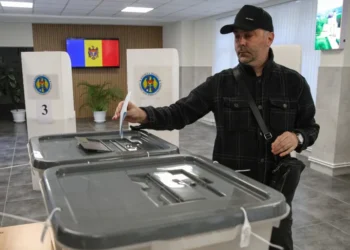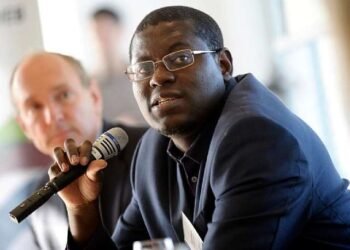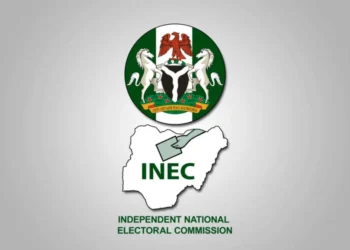Dr. Hene Aku Kwapong, a governance and development scholar, has challenged Ghanaians to shift their focus from merely enacting laws to building the social systems and structures that make democracy work.
Delivering the CDD-Ghana public lecture on the theme “Beyond the Text: Making Ghana’s Constitution Deliver Democracy”, he argued that constitutional provisions alone cannot solve Ghana’s governance challenges unless citizens cultivate order, discipline, and a culture of collective responsibility.
Using a vivid example from Accra’s busy streets, Dr. Kwapong described how traffic chaos around key government installations and businesses reflects a deeper national problem.
“Every morning, people set up shops and obstruct traffic near the National Theatre, Flagstaff House, and Ecobank. Even ambulances are forced to stop because of this lack of discipline. The problem is not something we can simply legislate away—it is much bigger than that”.
Dr. Hene Aku Kwapong
For him, such examples illustrate the gap between laws written in the constitution and the daily lived experiences of Ghanaians.
To highlight the importance of systems, he told what he called the “bucket game,” a parable of two villages fighting fires. In the first instance, 100 villagers tried to help by each fetching and throwing water individually, but the house still burned down.

In the second, they organized into a chain, passing buckets from hand to hand, and successfully saved the house. The lesson, Dr. Kwapong explained, was simple: “When there is no order or system, even with the best intentions, we fail. But when people work within a structure, the same effort produces results.”
He noted that many African countries, including Ghana, have recorded some level of growth, but this is largely dependent on natural resources rather than systems that build skills, knowledge, and sustainable enterprises.
“I do not know any Ghanaian company that has survived more than ten years and created jobs that have gone beyond our borders. This shows that our social structures are weak”.
Dr. Hene Aku Kwapong
Best Models
Comparing Ghana with Asian countries often used as models—such as Singapore, South Korea, and China—Dr. Kwapong cautioned against the belief that progress comes from a single strong leader. Instead, he argued that these countries built lasting systems and norms that went beyond individuals.
“People often say if we had not overthrown Dr. Kwame Nkrumah, Ghana would have been like Singapore. But the real story of countries like Singapore and South Korea is not just about one leader. It is about how they built social organizations and systems that endured”.
Dr. Hene Aku Kwapong
According to Dr. Kwapong, Ghana’s challenge is that its institutions are “brittle.” While they exist in law, their effectiveness is undermined by short-term politics, tribal divisions, constant policy reversals, and weak enforcement of standards. This has eroded trust between citizens and the state.

He argued that addressing these problems requires a deeper focus on social organization. He likened society to a computer: the “hardware” being the institutions and laws, and the “software” being culture, norms, morality, and responsibility. For a system to function, both must align.
He cited research that shows that successful societies balance hierarchy, trust, cooperation, and impartial rules. In Ghana, however, tribal suspicion and weak institutions often prevent collective action.
“We need institutions that channel our natural tendencies for cooperation into collective action, that reinforce our acceptance of hierarchy without abuse, and that embed impartial rules that everyone respects”.
Dr. Hene Aku Kwapong
Key Proposals
As part of his proposals, Dr. Kwapong emphasized the need to define clearly what constitutes villages, towns, and cities in Ghana, and to assign them specific services and responsibilities.
“I don’t know how we define a village in Ghana. You drive from Accra to Koforidua and see settlements of five people, others of a thousand. But without definitions, how do we know what services a village should have, or how resources sent to districts should be used?”
Dr. Hene Aku Kwapong
Defining settlements, he argued, would help ensure equitable development, prevent communities from being left behind, and guide resource allocation. He also called for the professionalization of local leadership, with trained managers for villages and towns.
“Accra has a mayor, but no one knows how he got there. In some countries, there is decentralization that allows communities to manage themselves. Here, when something breaks down in a village, people blame political parties. We need competent local managers to take charge of services and development at that level”.
Dr. Hene Aku Kwapong
Such leadership, he argued, would create a pipeline of experienced administrators who could later manage cities and national institutions effectively. Dr. Kwapong further urged Ghanaians to rethink how they live together as a democracy.
“We cannot continue with a system where potholes remain because nobody is in charge, or where neighborhoods are neglected because they lack managers. Democracy must be lived in our daily interactions, in how we manage our communities, not only in elections or constitutional provisions”.
Dr. Hene Aku Kwapong
Culture: A Bigger Challenge
For him, the bigger challenge is cultural: Ghanaians must learn to organize, to trust one another across ethnic divides, and to build institutions that reward cooperation. Without this cultural software, even the best constitutional reforms will fall short.

He stressed that human beings everywhere have the same potential for building good societies, but success depends on aligning laws with culture and fostering values of trust, friendship, and fairness.
In conclusion, Dr. Kwapong noted that the Constitution of 1992 has served Ghana well but must be supported by deliberate social reforms that instill discipline, strengthen institutions, and professionalize local governance.
“We think that by writing laws, everything will change. But laws are only the beginning. Systems, culture, and organization are what make a constitution deliver democracy,” he concluded, urging Ghanaians to move beyond the text and embrace the hard work of building order in their daily lives.
READ ALSO: COCOBOD’s GH¢2bn Coupon Payout Sets Stage for Fresh $4bn Cocoa Financing Deal



















